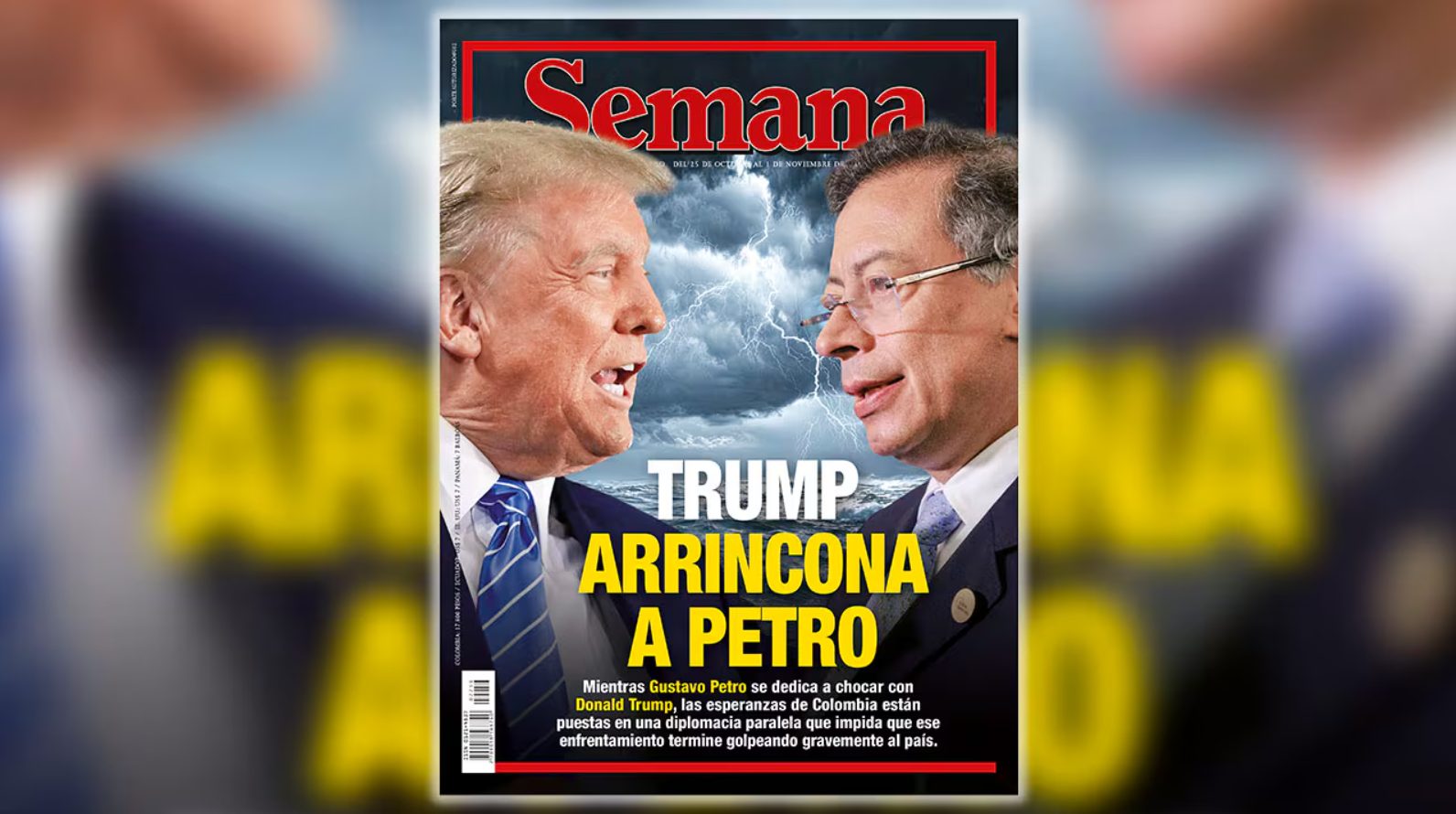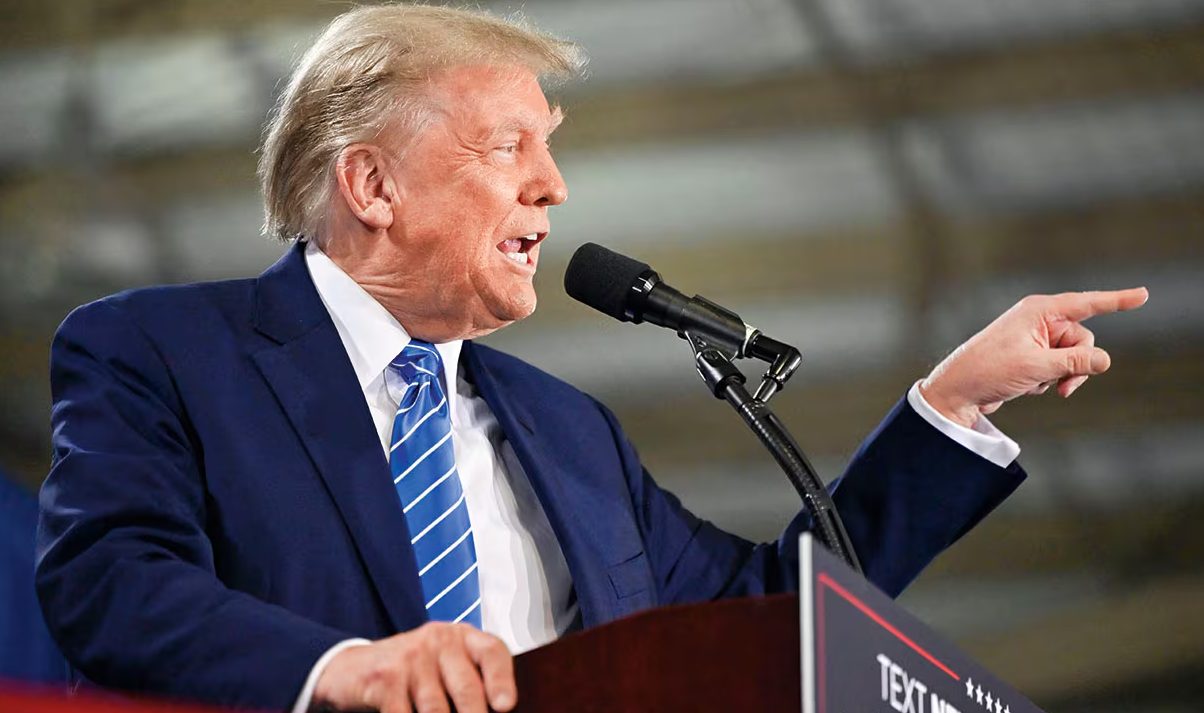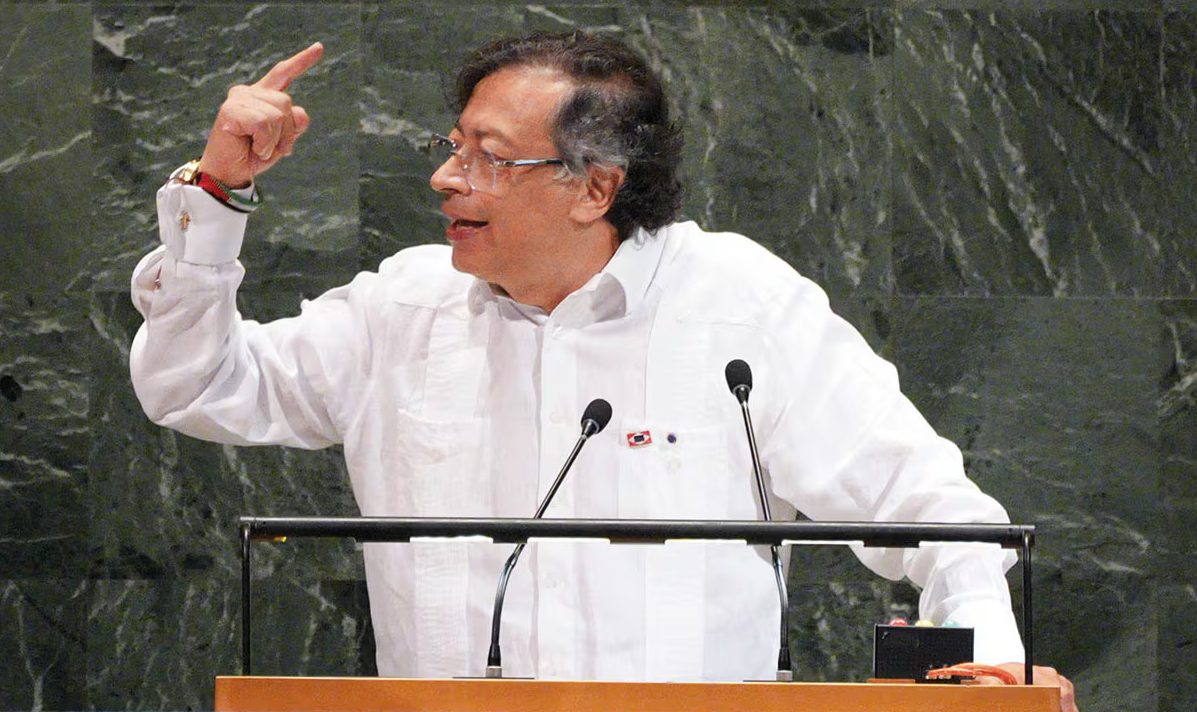
In the serious and highly eventful situation currently unfolding with Donald Trump, two versions of Gustavo Petro's character have been exposed. The first is that of a ruler suffering from Nero syndrome, the emperor accused of setting fire to Rome and immortalized in history as an example of how power and megalomania consume rulers.
That's what former President Iván Duque, for example, thinks. He claims that Petro is seeking to debacle relations with the United States because,"having no legacy, he wants to see everything burned down: diplomatic relations, trade, security, access to financing. He wants to play the victim and use this as a polarizing factor ahead of the 2026 election."
But there is another Petro: the version he believes he believes he is. He outlined it in Ibagué when he asserted that"the world no longer knows Colombia for Pablo Escobar, now they know it for Petro." And he reiterated this without blushing this Monday in an interview with Daniel Coronell."I will become unforgettable; many men want to be that way, and sometimes we can't," he said in the same interview, which once again sparked the ire of the White House."Humanity has a first way out, and that is to change Trump, in various ways; it may be through Trump himself, the easiest. If not, get rid of Trump," he warned.

Both versions of the Colombian president have the country mired in the worst period of relations between the two countries, with a government decertified in the fight against drugs and its president without a visa and on the Clinton List. And"with little chance of improvement," as Juan Cruz, former Western Hemisphere advisor to Trump during his first term, told SEMANA.
Petro, feeling he could embody the biblical character of David and defeat Goliath, opened a battlefront with dire repercussions in an unequal battle against the world's most powerful country. A battle of arrows versus missiles in which he believes he will win big, but Colombia will lose massively."The consequences for the country are much more complicated and acute than the consequences for the United States," says Brian Nichols, Biden's former assistant secretary of state for the Western Hemisphere.
Given this situation, former President Duque warns, there is only one way out. “Effective parallel diplomacy is needed from all of us who have built and valued the relationship with the United States to prevent this from becoming a tragedy. The government may change in 2026, but it will take time to restore everything Petro has destroyed, and we must prevent further destruction.”
How did it get to this point? Petro's verbal harassment of Trump not only infuriates the White House leader, but is also useful and exemplary today. It's difficult to understand the implications of the critical and dangerous moment Colombia is experiencing vis-à-vis the United States without framing it within the planetary system revolving around the sun that the Republican has become.
Trump is today the definitive figure in the world's major wars and problems."I want to try to reach heaven if possible," he said recently. He could have merits for this, according to experts: Hamas had to seal an agreement with Israel and return the hostages, and pressure from the White House is about to achieve something similar in the war between Russia and Ukraine.
His third international battlefront is the one that carries the most weight in the United States: the relentless war on drugs. There alone, Trump has intervened militarily and even bombed abroad. Having Maduro in power was already a bloody ordeal, a perfect enemy: a despot, a violator of human rights, a persecutor of the opposition, head of the so-called Cartel of the Suns, a criminal with a $50 million bounty on him, higher than the one on Osama bin Laden.
But if Petro doesn't show his face, the military deployment in the Caribbean could have been interpreted as a controversial way for the United States to pressure Maduro to leave power. Or, as the Colombian president put it, a"fictitious excuse for the far right to overthrow governments that don't obey them."
But then Petro arrived with a series of actions that seemed designed to unleash hell: returning the migrant planes, denying extraditions, accusing him of being a"genocidal" and a "Nazi," asking the US military to revolt, and suggesting Trump's sudden departure from power. And that military deployment now has a new setting: Colombia. This is the magnitude of the turn taken by the already dire tension between Petro and Trump.

This week, the United States made three very serious elements clear. The first is that they are behind the campaign financing and other money-related matters. This theory was confirmed with the inclusion of the president; his wife, Verónica Alcocer; his son Nicolás; and his Interior Minister, Armando Benedetti, on the Office of Foreign Assets Control (OFAC) list, known as the Clinton List.
Earlier this week, former U.S. Treasury Undersecretary Marshall Billingslea told the Senate that Venezuela “has fueled the socialist plague that has spread across Latin America” and that “that corrupt and dirty Venezuelan money is what financed Petro’s campaign.” Republican Senator Bernie Moreno later reiterated this: “What we have in Colombia is a president who was elected with the help of drug cartels.”
The second is Trump's claim that Petro is the"leader" of the drug trade. The US president was emphatic in not labeling him a drug lord on the same level as Maduro, but he did attribute responsibility to him through omission or collusion.
"They have a terrible leader there right now, a bad guy, a thug... they're producing cocaine at levels never seen before. They're not going to get away with it much longer. We're not going to hold out much longer," he said Thursday. Days earlier, when suspending aid to the country, Trump had pointed out that drug trafficking had become"Colombia's biggest business" and that "Petro is doing nothing to stop it." Hence the decertification.

